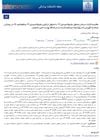 August 2015 in “Journal of Dermatological Science”
August 2015 in “Journal of Dermatological Science” Researchers found a new area on chromosome 2 linked to a genetic hair loss condition.
January 2015 in “프로그램북(구 초록집)” Epiduo® is an effective first-line acne treatment that reduces inflammation and combats antibiotic resistance.

The research found that people's hair proteins vary, especially by ethnicity and body part, which could help identify individuals in forensic science.
rhKGF2 significantly promotes hair growth and follicle development.
January 2009 in “한방재활의학과학회지” Saengbal-eum-2 promotes hair growth and reduces inflammation in mice.
March 1996 in “Hair transplant forum international” April 2023 in “Journal of Investigative Dermatology” TGFβ-2 may cause hair loss in androgenetic alopecia.
January 2023 in “Journal of Dermatological Treatment” Combining PRP injections with minoxidil 2% effectively promotes hair growth in hereditary hair loss.
September 2022 in “Frontiers in Immunology” Anti-androgen therapy may boost immunity but increases injection site pain in vaccinated patients.
 February 2022 in “Journal of Cosmetic Dermatology”
February 2022 in “Journal of Cosmetic Dermatology” Women with pattern hair loss may have more stress in their bodies due to a lack of NRF2, a protein. Eating healthy and losing weight could help reduce this stress and improve hair loss. NRF2 boosters might also help treat this type of hair loss.
October 2021 in “QJM: An International Journal of Medicine” Changes in NRF2 levels may contribute to hair loss in Egyptian men.
 May 2021 in “medical journal of mashhad university of medical sciences”
May 2021 in “medical journal of mashhad university of medical sciences” The mix of 2% flutamide and 5% minoxidil improves hair thickness more than just 5% minoxidil alone in treating hair loss.
 July 2020 in “European urology open science”
July 2020 in “European urology open science” Methylated gene parts may cause finasteride-resistance in some enlarged prostate patients.
September 2019 in “Zagazig university medical journal” Minoxidil helps hair growth but has side effects.
 January 2008 in “The Year book of endocrinology”
January 2008 in “The Year book of endocrinology” Gene variant linked to prostate cancer, hormone levels, and hair loss.
 115 citations,
November 1999 in “Journal of The American Academy of Dermatology”
115 citations,
November 1999 in “Journal of The American Academy of Dermatology” Minoxidil increases hair weight and count temporarily in men with hair loss.
 103 citations,
January 2011 in “Blood”
103 citations,
January 2011 in “Blood” Thymus transplantation successfully restored immune function in infants with FOXN1 deficiency.
 101 citations,
November 1992 in “Archives of Dermatology”
101 citations,
November 1992 in “Archives of Dermatology” Steroids help hair regrowth, and minoxidil slows post-steroid hair loss, but effects are temporary.
 69 citations,
February 1983 in “Gut”
69 citations,
February 1983 in “Gut” Men with coeliac disease may have hormone imbalances that could affect sexual function, but these can improve with better gut health.
 54 citations,
December 2007 in “Best Practice & Research Clinical Endocrinology & Metabolism”
54 citations,
December 2007 in “Best Practice & Research Clinical Endocrinology & Metabolism” Targeting glucocorticoid action might help treat type-2 diabetes, but human trials are needed.
 43 citations,
December 2020 in “PLOS Genetics”
43 citations,
December 2020 in “PLOS Genetics” New method finds genetic links between Type 2 Diabetes and Prostate Cancer not seen before.
 32 citations,
April 2019 in “JAAD case reports”
32 citations,
April 2019 in “JAAD case reports” JAK inhibitors helped treat hair loss in two people with Down syndrome.
27 citations,
June 2017 in “Expert opinion on investigational drugs” New anti-acne medications are being tested to offer alternatives to current treatments.
 27 citations,
August 1999 in “Urology”
27 citations,
August 1999 in “Urology” Finasteride improves urinary function in men for 2 years.
 23 citations,
April 1991 in “Journal of The American Academy of Dermatology”
23 citations,
April 1991 in “Journal of The American Academy of Dermatology” Minoxidil solution can cause skin irritation and allergies in some users.
 21 citations,
January 2021 in “Journal of infection and chemotherapy”
21 citations,
January 2021 in “Journal of infection and chemotherapy” Men, diabetes, and high inflammation levels lead to higher COVID-19 antibodies.
 15 citations,
April 2003 in “Journal of Dermatological Science”
15 citations,
April 2003 in “Journal of Dermatological Science” Gene differences may affect baldness treatment response in Korean men.
 8 citations,
December 2022 in “Nature Reviews Endocrinology”
8 citations,
December 2022 in “Nature Reviews Endocrinology” Sex hormones' effects on COVID-19 are unclear and more research is needed to understand their potential as treatment.
 8 citations,
April 2022 in “The journal of investigative dermatology/Journal of investigative dermatology”
8 citations,
April 2022 in “The journal of investigative dermatology/Journal of investigative dermatology” Certain genetic changes in the LSS gene cause a rare skin and hair condition.



















